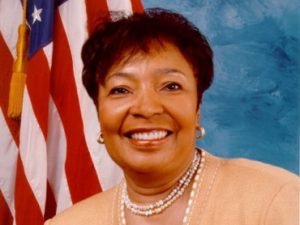
By Congresswoman Eddie Bernice Johnson
Dr. Carter G. Woodson, the Harvard trained historian who brilliantly birthed the idea that led to the celebration of Black History month, believed that all people regardless of their race, color or national origin should study and embrace the history of Black people in the United States. His belief led him to establish “Negro History Week” in 1926.
The history of Black elected officials in Texas, for instance, is an example of the wisdom of Dr. Woodson’s thinking. While representing primarily minority constituencies, many of the Black men and women who have served as elected officials in Texas have passed laws and established policies that have benefited people of all colors. Though it is not possible to shine a light on all of them because of space limitations, I would like to highlight the contribution of a few.
Representative Joseph Lockridge, elected in 1966, became the first African American to represent Dallas in the Texas Legislature since Reconstruction. After his death in a plane crash in 1968, he was succeeded by the legendary pastor/orator Reverend Zan Holmes. Dr. Emmett Conrad, a dentist, was the first African American elected to the Dallas Independent School Board in 1967. Ron Kirk, a lawyer, became the first African-American elected Mayor of Dallas in 1995.
In 1966 Barbara Jordan became the first African American female elected to the Texas State Senate where her knowledge of the law, and her eloquence set new political standards for elected officials throughout the state.
Six years later she was elected to the United States Congress where as a member of the House Judiciary Committee during the Watergate Hearings she articulated principles of American Democracy in a manner that captivated a national television audience.
Many credit Congresswoman Jordan, the first African American woman to deliver a keynote address at the Democratic Party’s national political convention, with having helped to prevent President Richard M. Nixon from circumventing the U.S. Constitution and destroying the credibility of our nation.
One of the pivotal organizations in Texas state politics has been the Texas Legislative Black Caucus. It was born in 1972 when the largest number of African American legislators in history was elected to the Texas Legislature.
The group’s founding members included Houston Representatives Anthony Hall, Mickey Leland, Senfronia Thompson and Craig Washington. Those elected from the Dallas area were Sam Hudson III, Paul Ragsdale and myself. The group’s first chairman was G.J. Sutton from San Antonio.
As a body, we identified our priorities. We decided that we would work closely with the state NAACP,
and that our agenda would include fighting for increased funding for historically disadvantage colleges. We agreed that we would take a very hard look at the state’s penal system, and that we would address numerous problems that affected African Americans, Hispanics and poor whites wherever they were found in Texas. We supported and passed legislation that reflected our concerns.
Some of the individuals from that group have made notable contributions to our state, and to the world. Representative Mickey Leland, who later became a member of Congress, was a global leader in the effort to eradicate hunger and malnutrition. In fact, he was killed in an airplane crash while on a hunger mission to Ethiopia in 1989.
His seat in Congress was taken by our colleague Craig Washington, who was known for his knowledge of the U.S. Constitution. Representative Senfronia Thompson remains in the Texas Legislature. She is one of the most influential legislators in the state of Texas.
These and many others too numerous to mention in this editorial have made substantial contributions to our state. They have made Black history, and their service has enriched the lives of all Texans.




